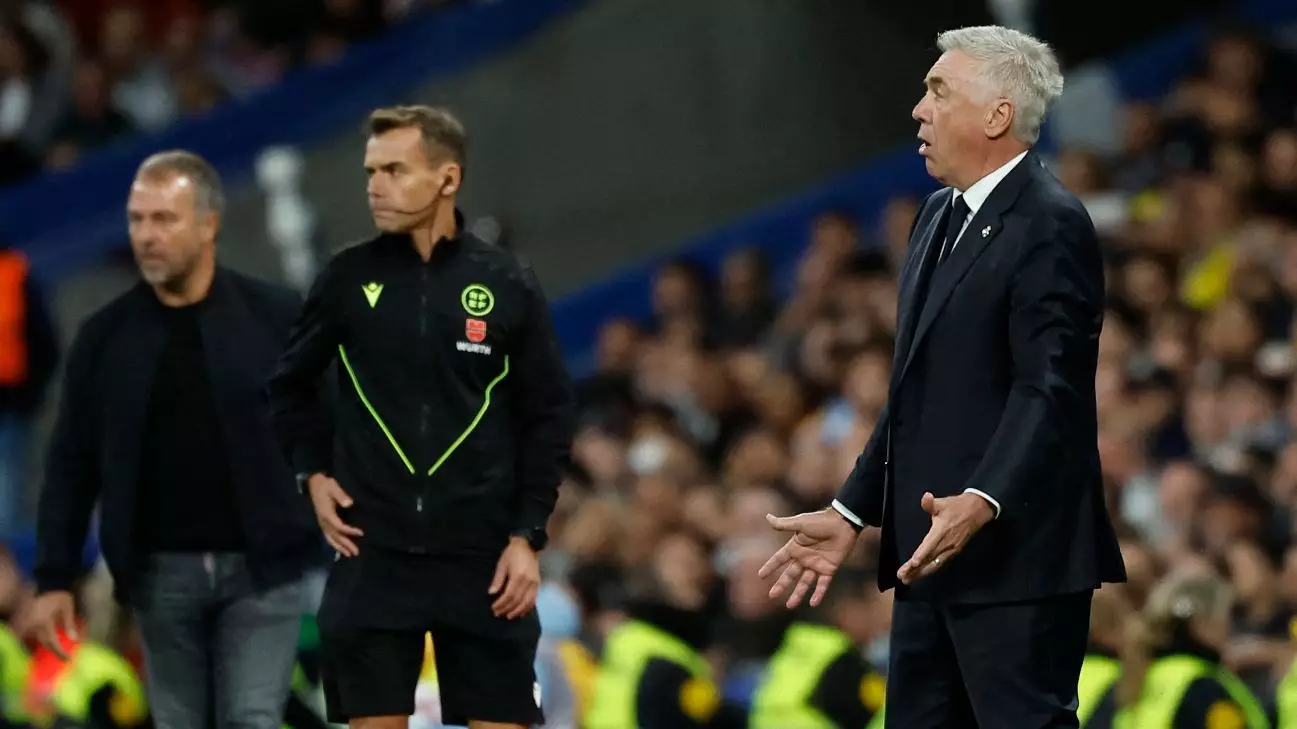The recent El Clásico saw a dominant performance from Barcelona as they stunned Real Madrid with a comprehensive 4-0 victory at the Santiago Bernabéu. The result not only marked a significant shift in La Liga standings, pushing Barcelona six points clear atop the table, but it also marked the end of Madrid’s impressive 42-game unbeaten streak in the league. In this analysis, we will delve into the match’s key moments, the reactions from both coaches, and the implications for the teams moving forward.
The match highlighted Barcelona’s tactical superiority, particularly in the second half. Striker Robert Lewandowski was the standout player, scoring two goals within a span of three minutes, demonstrating his striking prowess and ability to capitalize on crucial opportunities. Additionally, the contributions from Lamine Yamal and Raphinha showcased Barcelona’s depth and offensive capabilities. Yamal, notably, became the youngest scorer in Clásico history at just 17 years old, further solidifying his reputation as a rising star in world football.
Barcelona’s success can be largely attributed to their effective counter-attacking strategy, which exploited Real Madrid’s vulnerabilities. After a tightly contested first half, Barcelona seized the momentum once they took the lead, a testament to their ability to perform under pressure. Raphinha’s goal, which sealed the rout, was emblematic of their clinical nature; they punished Madrid’s mistakes and capitalized on every opportunity that came their way.
In stark contrast, Real Madrid’s second-half performance was disastrous. Coach Carlo Ancelotti had noted that the first half was evenly matched, but the momentum shifted dramatically after Barcelona opened the scoring. The psychological impact of conceding a goal seemed to sap Madrid’s energy, allowing their rivals to dictate play and control the pace of the game. Ancelotti was critical of his team’s inability to maintain composure, particularly highlighting their lack of clinical finishing in the first half when they had multiple scoring chances.
The fact that Kylian Mbappé had two goals ruled out for offside only compounded the frustration for Madrid. Ancelotti’s tactical approach, which aimed to exploit Mbappé’s speed against Barcelona’s high defensive line, backfired as they struggled with offside traps and failed to execute their plans effectively. The occurrence of 12 offside calls against Madrid epitomized their disarray, highlighting a lack of synchronicity among the forwards.
Post-match reactions added another layer of intrigue to the clash. Ancelotti expressed his dissatisfaction not only with the result but also with how Barcelona’s bench celebrated the fourth goal, specifically targeting the behavior of one of Hansi Flick’s assistants. This incident is indicative of the heightened emotions inherent in matches of such magnitude, where tactical battles often spill over into unsportsmanlike conduct.
Conversely, Hansi Flick remained composed in his response, suggesting that celebrations are customary in competitive sports but acknowledging that there is a time and place for such displays. His nuanced reply demonstrated an understanding of the emotional nature of the sport while maintaining a level head following an emphatic victory.
This fixture holds significant implications for both clubs as they progress through the season. For Barcelona, this victory not only reinforces their position at the top of La Liga but also serves as a confidence booster in their ongoing campaign. Winning convincingly against a historic rival like Real Madrid, especially after their recent Champions League triumph over Bayern Munich, adds momentum and belief to the squad. Under Flick’s management, the team has displayed remarkable form, winning 12 of their last 14 matches across all competitions.
In contrast, Real Madrid will have to regroup quickly after this humbling defeat. Ancelotti’s assertion that they must avoid dwelling on this loss is critical. The challenge lies in learning from the experience and not allowing this result to define their season. Their upcoming fixtures will test their resilience and ability to bounce back, as they aim to maintain competitive pressure in the league and strive for redemption in future encounters.
El Clásico continues to embody the drama and unpredictability of football, with this recent match solidifying the intense rivalry between Real Madrid and Barcelona. While one club celebrated a monumental victory, the other faced the arduous task of overcoming disappointment and analyzing the errors that led to their downfall. As the season unfolds, fans and analysts alike will be keenly observing how both teams adapt and what the future holds in this storied competition.

